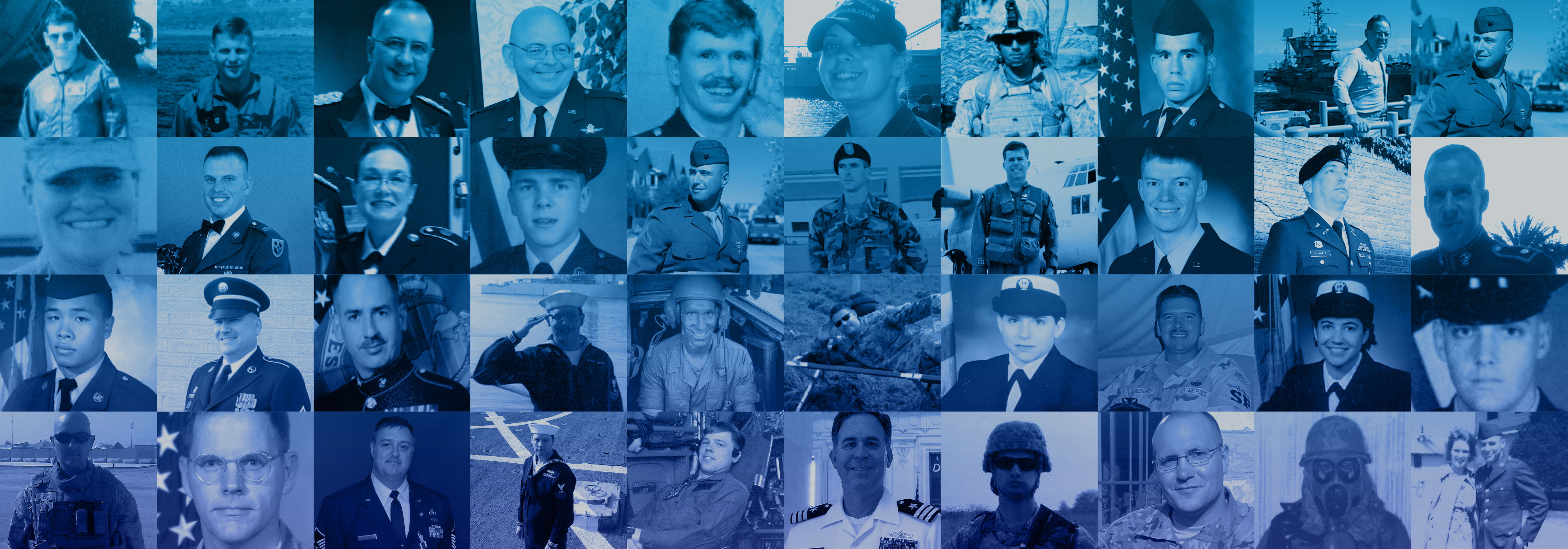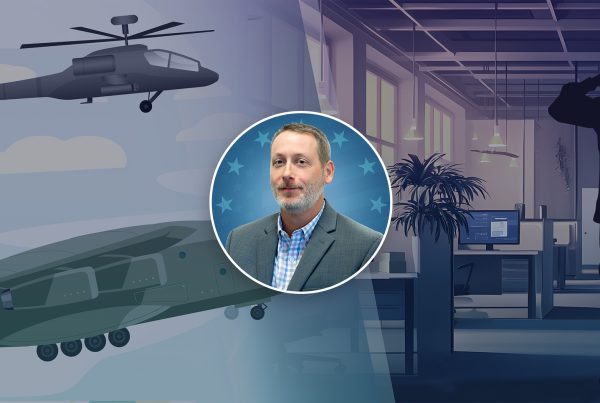This Veterans Day, we spoke with our veterans to learn more about their time in the service and the skills they gained that serve them in the corporate world. Their dedication, exceptional teamwork, and commitment to the mission drive ECS to deliver on government and commercial projects and programs day-in and day-out. With over 18.8 million veterans in the United States, ECS is committed to serving these men and women as a V3 (Virginia Values Veterans) partner.
For those men and women transitioning from the military to the corporate world, finding fulfillment can be a challenge. Service members are always working towards the success of their mission and their team, which can be difficult to find in a run-of-the-mill position. Research shows that when your work enables you to earn your success and serve others, you are more likely to find fulfillment in your career.
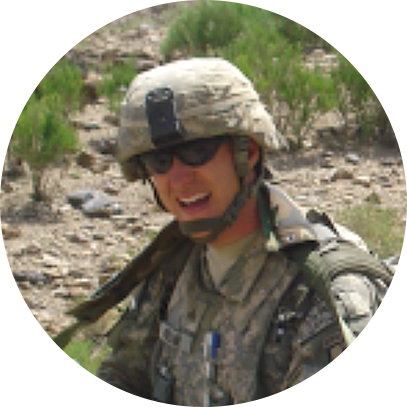
James Ritchie, Senior Program Operations Deputy/Tech Lead
Branch: United States Army
Years of Service: 2003-2011
Rank Achieved: Staff Sergeant
What is one great lesson from the military that you rely on in civilian life now?
One team, one fight!
While serving, it was important to take a step back and see where other improvements could be made, regardless of direct individual task. While actively engaging an attacking force, I saw that my Forward Observer (FO) was having a hard time finding Positive Identification (PID). Even though my direct task was to operate the 120mm Mortar System as the Fire Direction Center, we could not accurately engage due to the FO’s inability to capture targets.
As a response, I took the Lightweight Handheld Mortar Ballistic Computer (LHMBC) and my radio and ran to an elevated position to get a better view of the battlefield. From this position, I was able to assist the FO with points of reference so he could perform his task and get us on target to defend the Combat Outpost. This story crosses over to my civilian/professional life because it provided me with an understanding that sometimes, we have to take a step back to see how we can help improve other processes outside of our “scope” to bolster mission success.
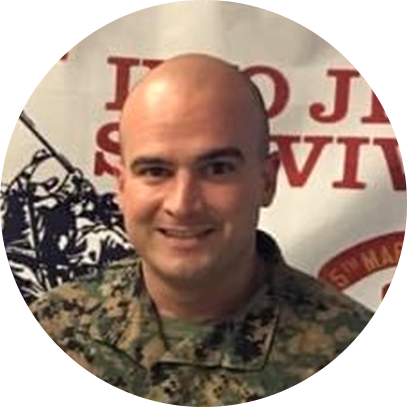
Bryan Snow, Program Manager – AI/ML Delivery & Ops
Branch: United States Marine Corps
Years of Service: 2009-2017
Rank Achieved: Sergeant
What is one great lesson from the military that you rely on in civilian life now?
A lesson I learned from serving: In the Marine Corps we have a set of leadership traits that every Marine can rattle off without hesitation which is the acronym JJ DID TIE BUCKLE. Three of these traits I have always gravitated to are Judgment, Dependability, and Unselfishness. When being brought up as a young, enlisted Marine, it was instilled in me to always make decisions while remaining calm no matter the situation using reason and logic.
Once that decision is made, you have to be dependable to accomplish the task and ALWAYS remain unselfish to give credit where credit is due to your teammates. I believe I still practice these traits daily, and it is a large factor of my success throughout my continued education and here at ECS coming in as a Trainer in 2019 and now as a Program Manager. No matter the position, these traits are hugely beneficial in guiding someone to executing as a leader.
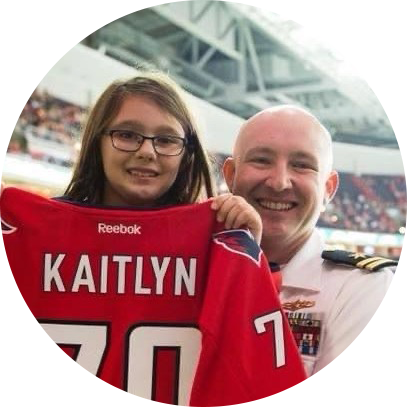
Joe Lemanek, Senior Capture Manager
Branch: United States Navy
Years of Service: 2002-2022
Rank Achieved: Lt Cdr (Mustang)
What is one great lesson from the military that you rely on in civilian life now?
Take care of your people, and they will accomplish the world with you.
This advice guided me throughout my career; from my early enlisted ranks all the way up through when I retired from the military as a LCDR and has continued into my civilian career. On my deployments to the far corners of the world, often I would be with a small team of folks where all we had was each other. We all understood the mission and how each person’s skills contributed to accomplishing that mission.
What bonded us was the ability to understand this: underneath the uniform, we were people with individual goals, stressors, feelings, and thoughts. Taking the time to get to understand your folks, learning what drives and motivates them, knowing what worries them, and putting effort into forging a personal connection, is the true sign of a good leader.
Once that relationship is built at the individual level and trust builds within the team, you realize that together, you can accomplish anything. Often, overall success will be a direct result of that trust and those relationships and not simply because of the “leader’s” rank, title, or position of authority.
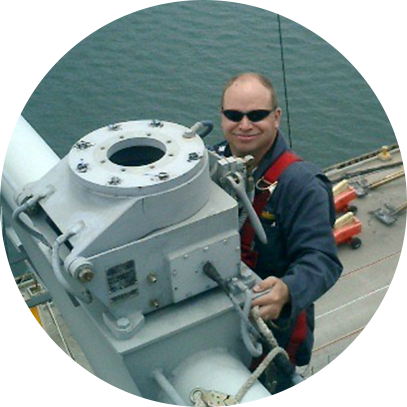
Neil Hamlett, Cybersecurity Data Architect
Branch: U. S. Navy
Years of Service: 1985-2007
Rank Achieved: Commander (O-5)
What is one great lesson from the military that you rely on in civilian life now?
I was assigned to U.S. Navy Board of Inspection and Survey (INSURV) from 2002-2004. Created by Congress, INSURV monitors the material conditions of Navy warships and administers material inspections (MIs) of each ship once every three to five years.
I served as senior inspector for Command, Control, Communications, and Intelligence (C3I) systems. In this role, I managed inspection standards for those systems, trained and supervised other C3I inspectors, and analyzed trends in inspection results. I also personally performed material MIs on nearly 30 individual warships, including more than one-fourth of the entire inventory of Ticonderoga-class guided-missile cruisers.
I began to notice a trend about halfway through my two-year INSURV assignment. Specifically, material condition varied widely from ship to ship. Moreover, “strong” ships tended to remain “strong” throughout their lifecycles, and “weak” ones tended to stay “weak”. On average, each ship receives the same basic tangible inputs: human capital (sailors), operations and maintenance support, capital improvements (periodic major upgrades). Despite this, INSURV found dramatic differences between individual warships’ material conditions.
What appeared to be happening? Intangibles determine an individual warship’s mission performance and material maintenance at least as much as measurable inputs. What intangible? Culture, “command climate” in military terms, strongly influences whether an organization effectively utilizes its tangible inputs. Furthermore, culture takes on a momentum of its own that is extremely hard to change. A few years later, while working strategy and analytics with IBM, I corroborated this perspective through a project to analyze INSURV’s entire inspection-history database.
What lesson do I draw? Introducing new technology into a client’s organization doesn’t improve efficiency and effectiveness much if other bigger issues like culture, strategy, operations, and organization are not also addressed. My current career phase focuses on helping clients improve through smarter use of data and analytics. Rather than jumping right in and performing fancy statistical calculations in search of “insights,” I first cultivate an understanding of my clients’ missions and clarify the operational challenges they need to address.
Peter Drucker, the “father” of modern business consulting, famously observed that “culture eats strategy for breakfast”. No amount of fancy statistical calculations, business analytics, machine learning, or artificial intelligence helps much if clients don’t also change how they think about their mission and how they work together to accomplish it.


